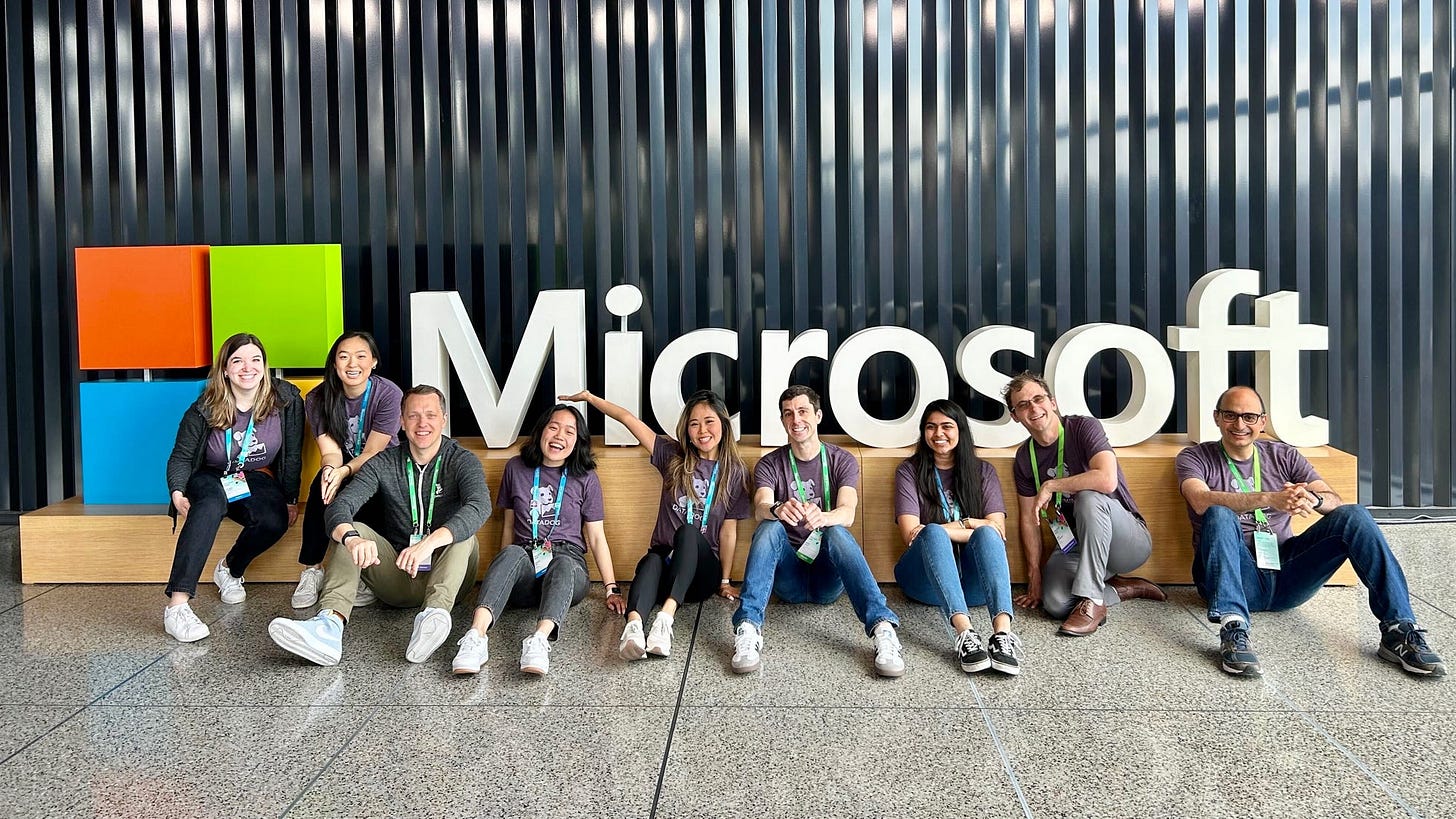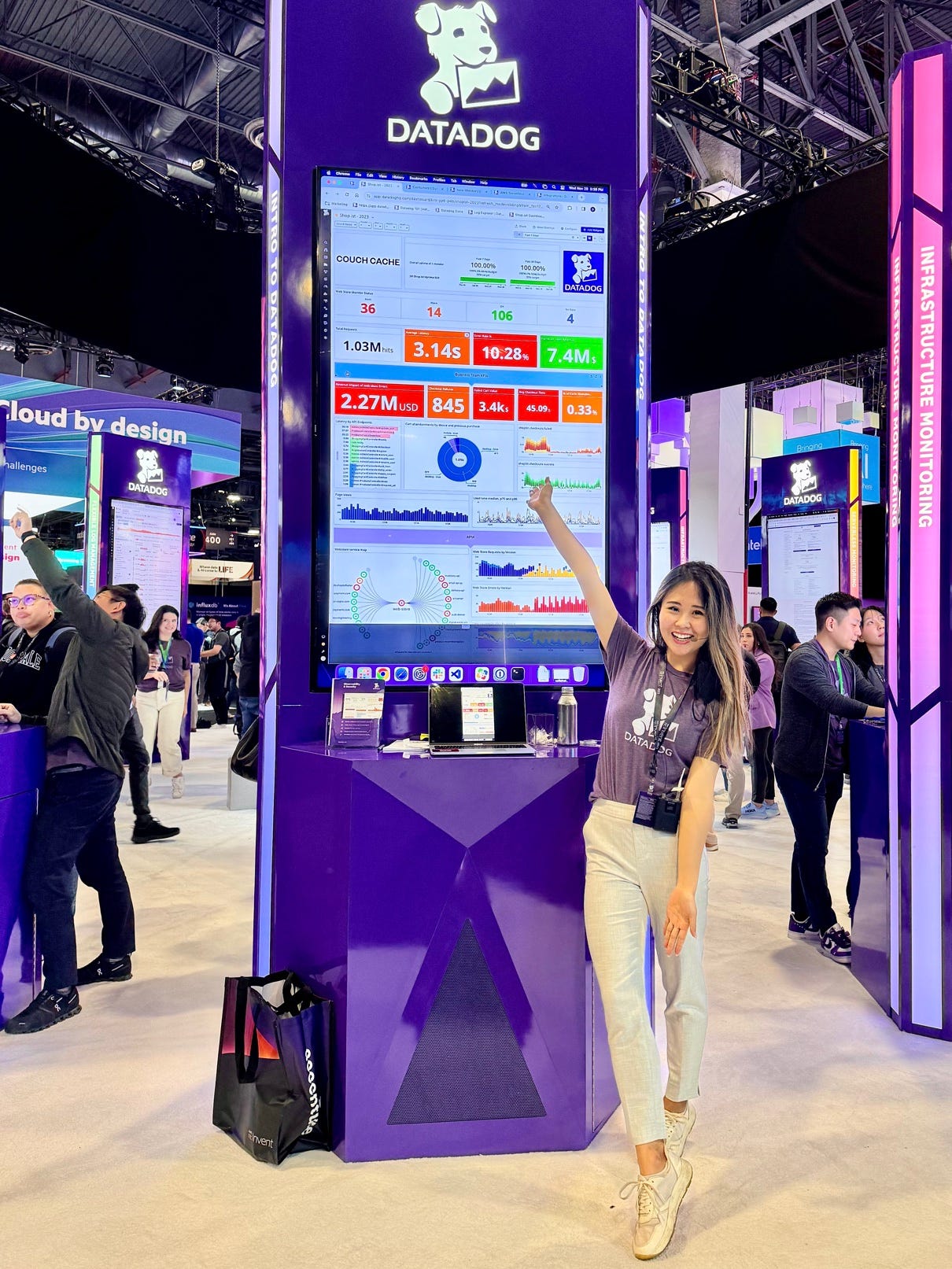On Generosity
How to build trust and win big.
It feels odd to begin a meditation on generosity with a photo of the Microsoft logo, but that’s where this story begins. It was the spring of 2023 and I’m a year into a role with expectations that, well, sort of just collapsed on me. Our VP was on the way out, 2 Directors left in under a year, trailing 12-month IC turnover was nearing 100%, and I was put on the worst-performing business in an otherwise rocketship company.
Call it a self-fulfilling prophecy, but there are moments when I can feel I’m in the presence of something greater than myself. Within months, the business would show a remarkable turnaround, I’d be reporting directly to our CMO, and the Board would approve more budget, headcount, and resourcing than I knew what to do with.
But—
In that very moment, it was Seattle’s first warm week of spring, Microsoft Build was back in person since the pandemic, and we were still underdogs struggling with a troubled business turnaround.
Still underdogs, still nimble, still hungry.
I am deeply indebted to the Product leaders, Eng managers, and Partner and Alliance Sales counterparts who taught me everything I know about playing to win: winning the PoC, winning the deal, winning the category, winning the loyalty of customers.
But the overarching thesis underpinning all our subsequent success was even simpler: be generous. Be generous when you can afford it. Be generous when you can’t. Be generous about sharing best practices with customers. Be generous about sharing your time with your team. Be generous about sharing learnings back with analysts. Be generous about upping the ante with competitors. Be generous all the time. Be generous and give, give, give before you get. And trust, in time, you will get.
That’s it. That’s the winning formula.
Be generous all the time. That’s the winning formula.
As
uncomfortably pointed out this week, every marketing channel sucks right now. Oops. Tough times to be a marketer. Maybe we did it to ourselves?12Still, these are the things I know to be true:
Good marketing is give-give-give-get. We have to build a relationship with a customer before we ask them to pull out their checkbooks. Then, trust that we’ve done our jobs well enough to deserve their business (i.e., their trust).
Trust brings velocity to relationships. Trust is not an act we put on in order to close a deal; it is the North Star that must guide our decisions as go-to-market teams building playbooks for customer relationships at scale.
Generosity is a force multiplier. Generosity builds trust faster than credentials, and opens doors hustle can’t. It’s not just good karma. It’s good strategy. In a world optimized for transactions and ‘hey! just a quick ask’, generosity stands out.
This past year, since moving from a 6,000- to 60-person company, I’ve been learning how to punch above our weight, come across larger and more resourced than we are, go head-to-head with the 800-pound gorillas in our space — and still win.
How do we win Fortune 50 customers when we barely have 50 employees?
With the same formula: being generous.
Companies with 500,000 employees don’t have time to sift through noise. To handhold, guess, or gamble. But they notice clarity. They notice helpful content. They notice when we bring a unique insight, a differentiated point of view, not just a pitch. And most of all, they notice when we’re giving more than we’re taking.
They are, after all, people too. 500,000 people, to be precise.
When we’re generous with our knowledge, our energy, our insights, we stand out. We earn trust. We build relationships. And in a world full of vendors vying for attention, that’s how we win: by giving more than our customers expect. That’s the formula.
It’s not flashy. It’s not complicated. But it works.
You’ll have to trust me on this!
I’m not convinced that the reason all known marketing channels aren't working is because we've shoved them to the gills with bad marketing. For example, I've never met a developer who liked ads, but I’ve also met plenty of devs who're excited about a product after finding a useful insight or helpful technical solve. Of course, “good” or “bad” marketing is subjective. I, for one, would love to see the end of thot thought leadership and clickbait.
A recent email subject line: “Daria, I know where you live” — got me to click, also marked as spam and blocked forever. Marketers, do better!



